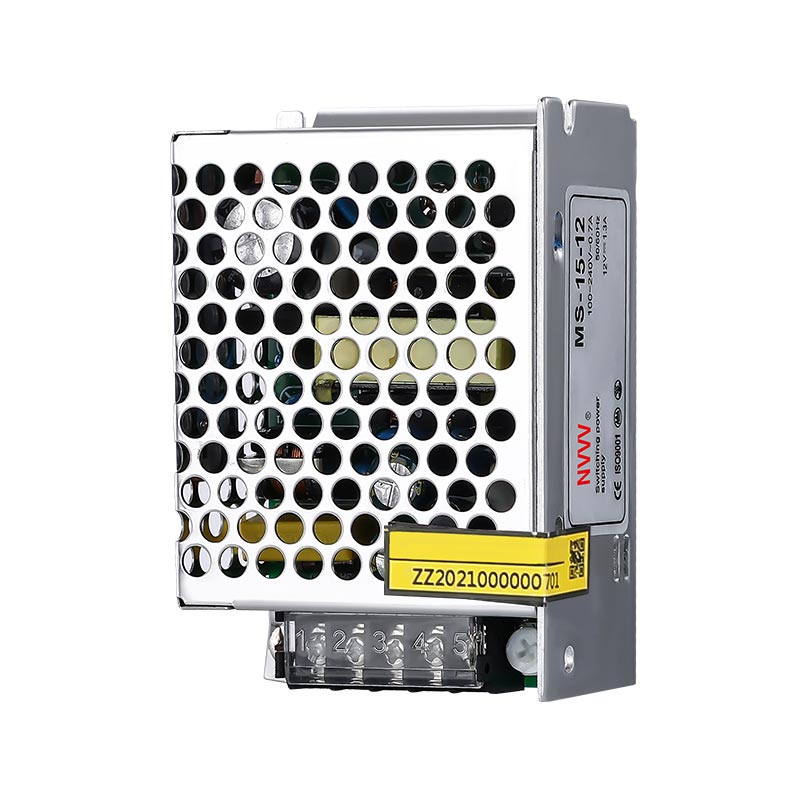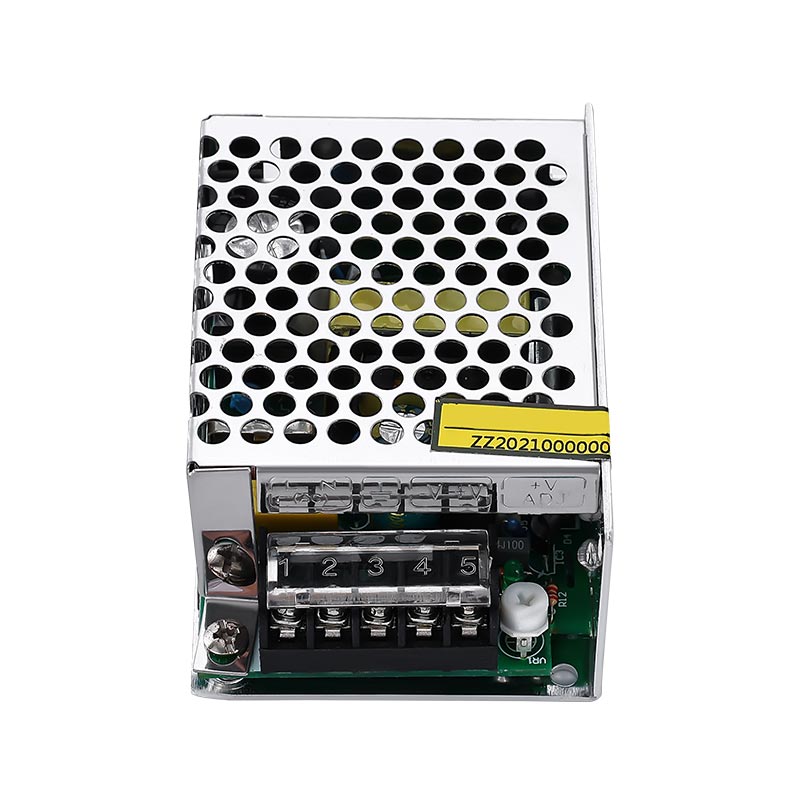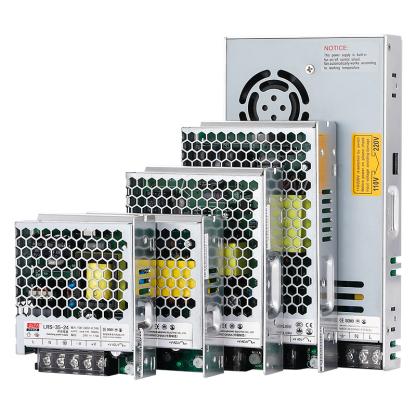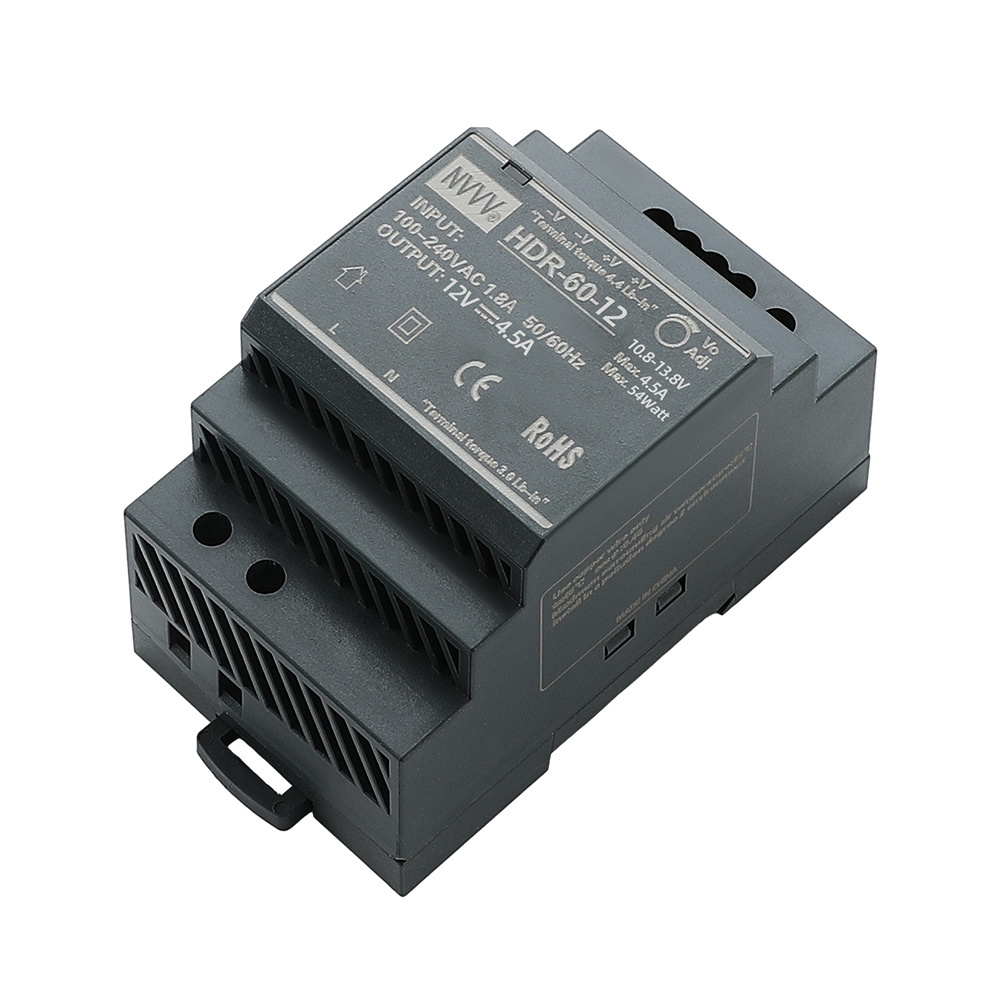What is the Difference Between 12V and 24VDC Power Supply?
Understanding the differences between a 12V and a 24V DC power supply is crucial for anyone dealing with electrical systems, whether in automotive, industrial, or renewable energy applications. This article explores the differences between these two types of power supplies, their advantages and disadvantages, and how to choose the right one for your specific needs.
Voltage Levels and Their Significance
The voltage level in a power supply defines the electric potential difference, which dictates how much energy is delivered by the power supply. In DC (Direct Current) systems, 12V and 24V are the most commonly used voltage levels, each offering distinct characteristics suitable for different applications.
12V DC Power Supply
A 12vdc power supply is a common choice for a wide range of applications. Another commonly used one is 12vdc switching power supply. Its popularity stems from its widespread use in automotive systems, consumer electronics, and small-scale solar systems. Here are some of its key characteristics:
Common Applications: The 12-volt dc power supply is extensively used in car batteries, recreational vehicles (RVs), marine applications, and low-power consumer electronics. It is also the standard voltage for many household appliances and electronics, such as routers, LED lights, and CCTV systems.
Availability: Due to its popularity, 12V components, accessories, and batteries are widely available and typically cost less than their higher-voltage counterparts. This makes it an accessible choice for hobbyists and professionals alike.
Safety: The relatively low voltage of a 12V system poses less risk of electrical shock, making it safer for use in consumer electronics and household applications.
Efficiency and Losses: One of the downsides of a 12V system is its efficiency. With lower voltage, systems require higher currents to deliver the same power, leading to increased resistive losses (I²R losses) in wiring and components.
24V DC Power Supply
A 24vdc power supply is typically used in more demanding industrial and commercial applications. Another commonly used one is 24vdc switch mode power supply(SMPS). Here are some of its defining features:
Applications: The 24V systems are common in heavy-duty equipment, industrial automation, telecommunications, and larger solar panel installations. They are often used in environments that require higher power levels or longer cable runs.
Efficiency: A significant advantage of 24V systems is their increased efficiency in power transmission. With a higher voltage, these systems require less current to deliver the same power, reducing resistive losses and allowing for thinner, less expensive wiring.
Power Capacity: 24V systems can handle more power and are generally better suited for high-demand applications. This makes them ideal for industrial settings where heavy machinery or equipment needs a reliable power source.
Safety Considerations: While 24V systems are still considered low voltage and pose minimal risk of shock, they do carry a higher risk than 12V systems, particularly if not properly insulated or if used with inappropriate components.
Advantages and Disadvantages
Both 12V and 24V power supplies have their unique advantages and disadvantages, which should be carefully considered when selecting the right system for your needs.
12V DC Power Supply: Pros and Cons
Advantages:
Widespread Availability: The widespread use of 12V systems means components and accessories are readily available and often less expensive.
Ease of Use: 12V systems are easier to install and configure, particularly for DIY projects or consumer electronics.
Safety: The lower voltage of 12V systems reduces the risk of electrical shock, making them safer for inexperienced users.
Disadvantages:
Efficiency: 12V systems can be less efficient than 24V systems, especially over long distances, due to higher current requirements and resistive losses.
Power Limitations: The lower voltage means these systems are less suited for high-power applications or environments with heavy equipment.
24V DC Power Supply: Pros and Cons
Advantages:
Efficiency: Higher voltage means lower current for the same power, leading to reduced resistive losses and improved efficiency.
Power Capability: 24V systems can support more powerful applications and are suitable for industrial and commercial use.
Longer Cable Runs: The reduced current in 24V systems allows for longer cable runs without significant power loss, which is beneficial in large installations.
Disadvantages:
Cost and Availability: Components for 24V systems can be more expensive and less readily available than those for 12V systems.
Complexity: Installation and maintenance of 24V systems can be more complex, requiring more expertise and careful planning.
Safety: Although still low voltage, 24V systems have a slightly higher risk of electrical shock compared to 12V systems.
Choosing Between 12V and 24V Power Supplies
The decision to use a 12V or 24-volt dc power supply depends on several factors, including the specific application, power requirements, installation environment, and cost considerations.
Application Requirements
Low-Power Consumer Electronics: For applications such as LED lighting, small electronic devices, and automotive accessories, a 12V system is often sufficient and cost-effective.
Industrial and Commercial Equipment: If your application involves heavy machinery, long cable runs, or high-power requirements, a 24V system is likely the better choice due to its efficiency and power capacity.
Installation Environment
Space Constraints: In environments where space is limited, such as in RVs or small boats, a 12V system may be more practical due to the smaller size of components and wiring.
Environmental Conditions: Consider the environmental conditions, such as temperature and humidity, as these can affect the performance and durability of power systems. Ensure that components are rated for the specific conditions they will face.
Cost and Availability
Budget Constraints: If cost is a significant factor, a 12V system might be more suitable due to the lower cost of components and widespread availability.
Future Expansion: Consider whether the system might need to be expanded or upgraded in the future. A 24V system offers more flexibility for expansion and increased power demands.
Safety and Regulations
Regulatory Compliance: Ensure that the chosen voltage level and components comply with relevant safety standards and regulations for your application.
User Safety: Consider who will be interacting with the system and their level of expertise. Choose a system that minimizes risk and is safe for all users.
Examples of Common Uses
Solar Energy Systems: In residential solar installations, 12V systems are commonly used for smaller setups, while 24V systems are preferred for larger, grid-tied systems due to their efficiency.
Electric Vehicles: In electric vehicles, 12V systems are typically used for auxiliary systems such as lighting and entertainment, while the main propulsion system often operates at much higher voltages for efficiency.
Telecommunications: 24V systems are frequently used in telecommunications to power equipment over long distances, where reduced current and resistive losses are beneficial.
Conclusion
Understanding the differences between 12V and 24V DC power supplies is crucial for selecting the right system for your specific needs. While 12V systems offer affordability and ease of use, 24V systems provide increased efficiency and power capacity for demanding applications. By carefully considering the application requirements, installation environment, cost, and safety considerations, you can make an informed decision and ensure the reliable and efficient operation of your electrical systems. Whether for automotive, industrial, or renewable energy applications, choosing the appropriate voltage level is key to optimizing performance and ensuring long-term success.









